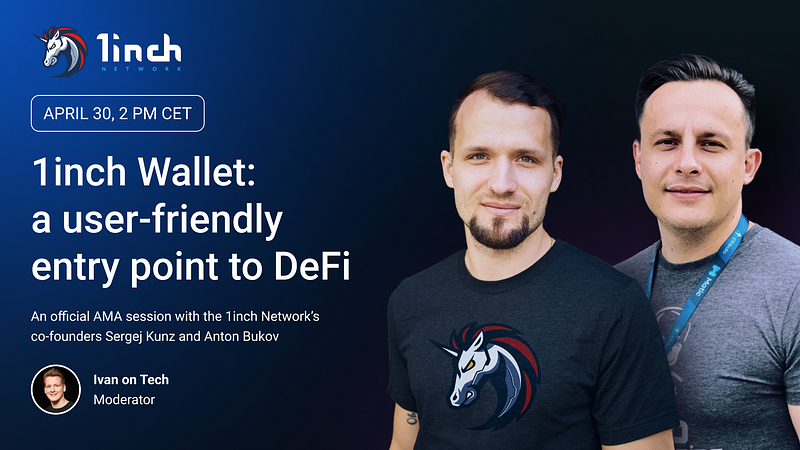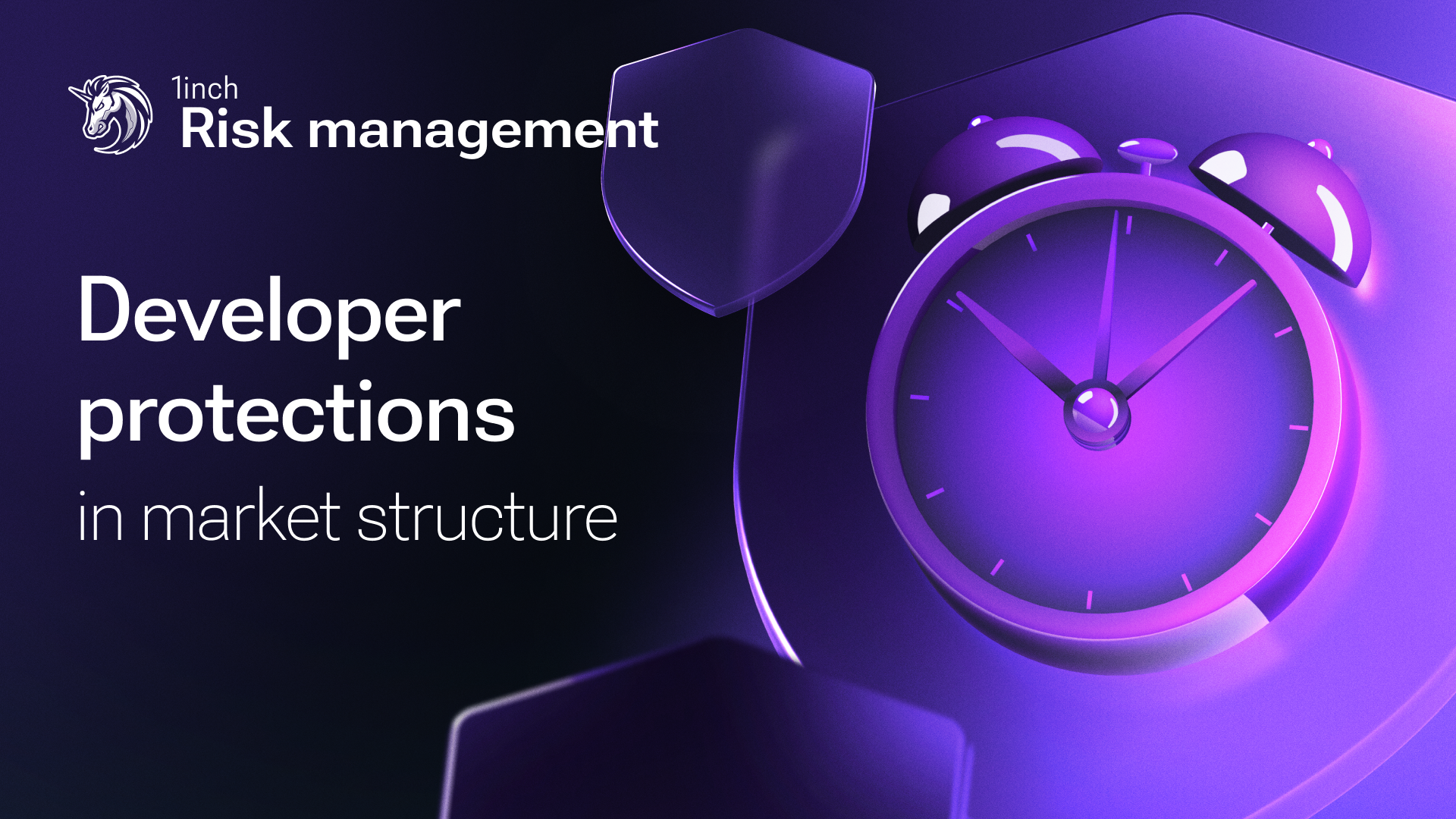1inch AMA: key takeaways

On April 30, the 1inch Network co-founders Sergej Kunz and Anton Bukov did an AMA. In this post, the most important takeaways from the AMA are gathered.
- The introduction of a deflationary burning mechanism would reduce stakers’ APYs, because this would make every holder benefit rather than just stakers. Therefore, it won’t happen shortly but may be considered in future as there are long-term benefits.
- An auto-compounding feature could be implemented by an external contributing team, as long as security is not compromised.
- Gasless voting is too complicated to be introduced at this stage of 1inch governance. However, a promising solution, zkPorter from Matter Labs, which is expected this summer, could be integrated at the second stage of 1inch DAO governance.
- Similarly to Binance, where you can convert any token to BNB, 1INCH can be converted to several stablecoins, including USDC, USDT etc. However, as far as swapping multiple tokens for multiple tokens goes, security concerns arise. If there is a way to achieve proper security, in future, an interface for swapping multiple tokens for multiple tokens in one transaction could be built.
- Two teams are joining the 1inch Network to work on a decentralized storage protocol and decentralized ETFs, respectively. 1inch is a completely open ecosystem, in which protocols benefit from each other.
- The idea of a yield aggregator is very risky in the current environment. Each profitable strategy has tradeoffs, and users don’t always understand risks that would be involved in a yield aggregator.
- 1inch is looking into the Polygon (MATIC) sidechain to estimate its possible value. Still, bridges present a serious risk. If you bridge liquidity and the bridge fails — gets hacked by Multi Sigs validators, for instance — the liquidity will be lost. So far, there haven’t been any bridge hacks, but they will happen — it’s just a matter of time. Billions in assets could be stolen. Projects have to understand who is behind a bridge and if it is truly decentralized.
- Aave double rewards have not yet been distributed because Aave had a problem with the 1inch Foundation’s multi-signature. A smart contract has already been written and is currently audited. Once that process is completed, distribution will be done from the 1inch Foundation side.
- A deliberate decision was made not to publish a roadmap as activating new features makes more sense than announcing them in advance and delivering with a delay or not delivering at all. The 1inch Network prefers to surprise users and exceed expectations. Still, at some point, we may specify some areas of the DeFi space in which work is currently in progress.
- Work on more merch is underway, and something new is expected already in May.
- A limit order protocol will be released shortly.
- Shadow staking looks unsustainable and too centralized as it uses the push model to send tokens to wallets where fees are charged from stakers’ own rewards. Users would be unhappy, especially, if they stake tokens for longer periods.
- An option of direct conversion of 1INCH stakers’ rewards to other tokens (ETH/BNB) is not on the table. 1INCH doesn’t have a financial value, and there are no benefits for users, plus there would be potential trouble with regulations. Work is in progress on solution that will allow efficiently swapping all assets for one specific asset with paying zero gas.
- 1inch has a community-supported team responsible for adding new tokens after proper vetting. The procedure of listing a new token is quite straightforward.
- Rewarding 1INCH stakers for longer staking period has been considered, but such a system could be tricked by tokenizing on top of it. It’s hard to make restrictions on tokens that would prevent such a scenario. And 1inch’s approach is to always avoid creating solutions that could be abused.
- There are no plans to build an equivalent of MetaMask, as in future, MetaMask won’t be needed: users will connect their mobile wallets directly to dApps.
- Front-running attacks don’t happen on the 1inch Liquidity Protocol. Stealth transactions could be used to mitigate front-running attacks on other protocols.
- The idea of “shared liquidity” between CEXex and DEXex is already being implemented in the DeFi space, but it’s the job of market makers.
- The 1inch Foundation has an insurance fund to recover users’ possible losses from hacking. But security of the protocols is taken very seriously, and, for instance, the aggregation smart contract underwent 11 security audits.
- Advanced support for NFTs could be introduced in the 1inch Wallet at a later stage if there were sufficient demand from users.
- Discussions with banks and fintech companies about using the 1inch API as an aggregation information service are under way. That would allow banks to offer better exchange rates to their customers.
A full video of the AMA is available here. Also, special thanks to Diego from the 1inch community, who helped with an AMA recap ❤️
Meanwhile, more AMAs are coming. To avoid missing out on them, stay tuned!




























